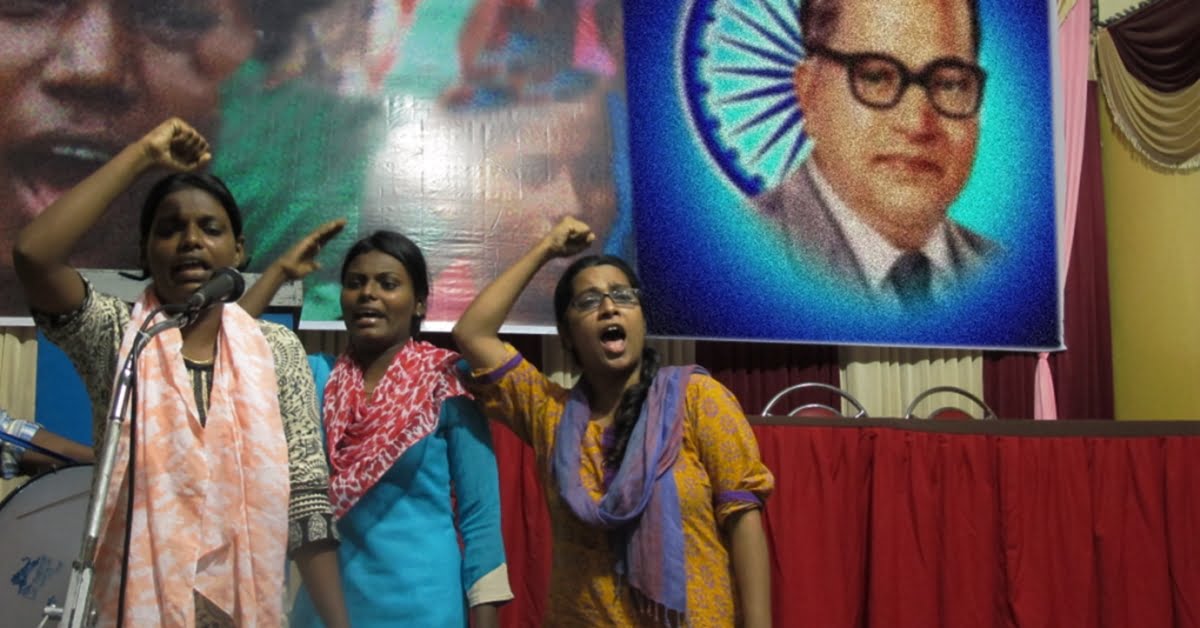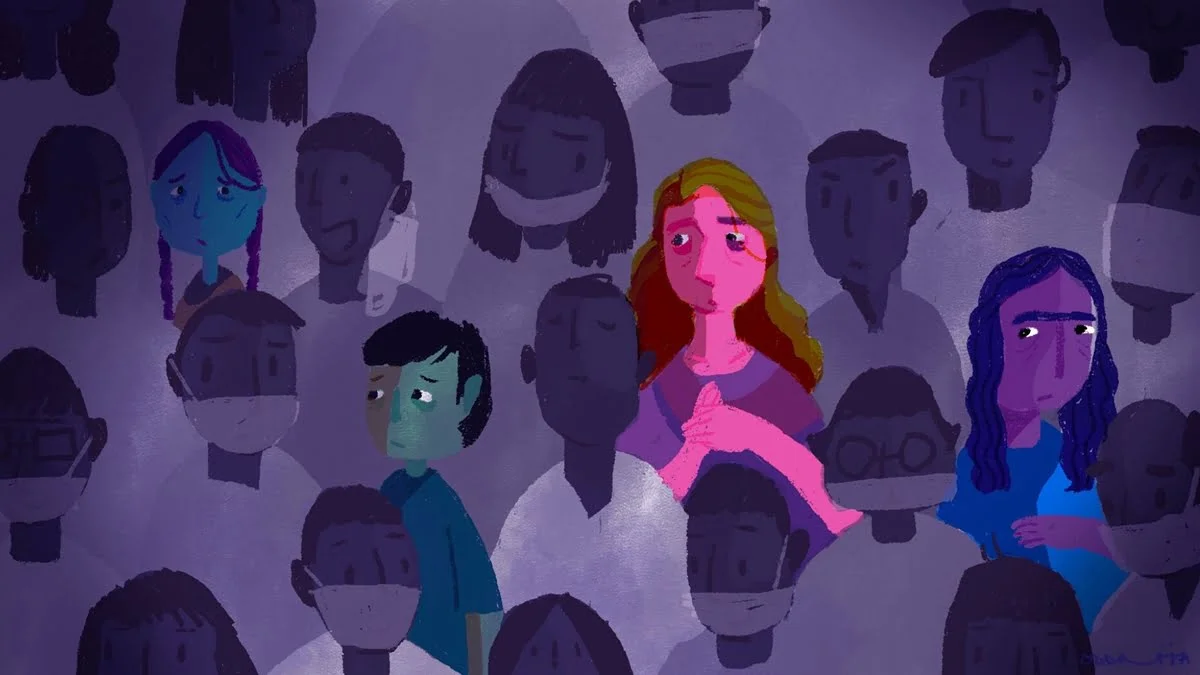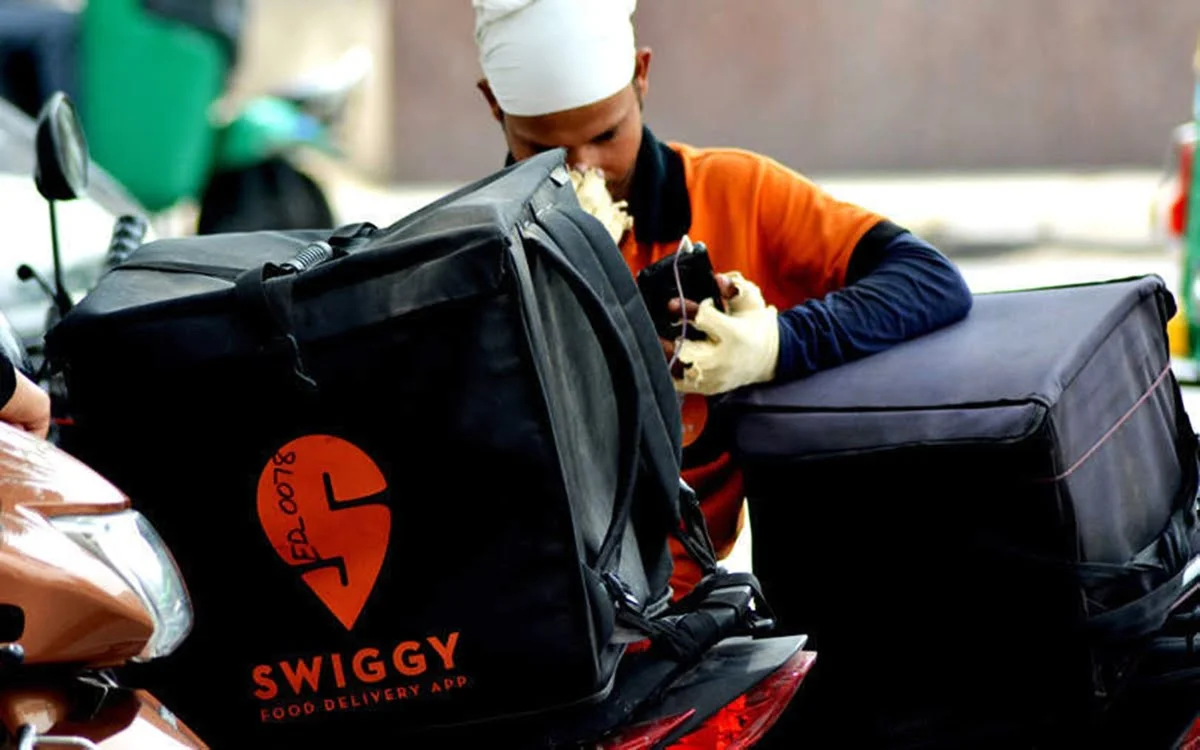‘When Elon Musk embarks to his colony on Mars, there will be an Indian waiting for him with Chai’, ‘there is an Indian in every nook and corner of the world’ – phrases of this nature are familiar to all of us. These invoke the globality of Indians. According to 2011 census data, 45.6 crore Indians are categorised as migrants of which 1 percent account for international migration.
International celebrities of Indian descent are constantly brought up and quickly claimed by us – ‘Made in India‘. Kamala Harris and Sundar Pichai are used by parents to set standards and remind their children of the smartness and efficiency inherent in Indians. An addition of a foreign degree, in particular from an Ivy League Institution, to the Indian Merit, is the secret recipe to success.
In 2017, 5.86 lakh Indian students studied abroad spread across 86 countries, with 66 percent of the target population concentrated in three countries: the U.S, Canada, and Australia (MEA 2017). In 2019, I secured a scholarship to study gender in the U.K and Spain for a year each. Unsurprisingly, there were already Indian student groups in place.
At one of the parties hosted by an Indian acquaintance, I was introduced to a group of jolly good Indians. I was discussing my scholarship terms and the inability to afford the posh student accommodations. A postgraduate student was gobsmacked and blurted out, ‘There are scholarships for Indians? No one told me. I was in turn shocked that he did not even think of the possibility.
He followed it up with ‘You are so lucky!’. Thank you? Confused, I moved on to another group of students who were discussing Rajnikanth movies and I pitched in saying how much I loved Kaala, to which a film student replied, ‘It is a nice movie and he is a great director but his problem is he is obsessed with those people. I perfectly understood which people he was referring to – my people, the Dalits and Bahujans. My Indianness was lacking, an avarna Indian, I did not belong. Born in India, marked abroad, lucky Indian.

Merit versus luck
Democracy is hanging by a loose thread. Globally, overt racism and full-fledged xenophobia are resting comfortably on the rhetoric of merit. In popular conception, a meritocratic society rewards efficiency and talent which stands isolated from social and cultural baggage. It is based on the holy trinity of personal responsibility, natural talent, and hard work. How did the idea of merit develop?
The concept of meritocracy is entangled and derived from the moral and ethical virtues closely related to religious faith. Sandel argues, ‘Biblical theology teaches that natural events happen for a reason…this outlook is the origin of meritocratic thinking’. This hides the whole social process of making merit by proclaiming that merit is inherent and divinely ordained, which can be enhanced through hard work. Therefore, merit exists outside the purview of class, race, and gender.
Similarly, the making of merit in India is hidden within Hinduism. ‘Pattaril pottan ella’ is a frequently used Malayalam phrase which translates to ‘No idiot can be found among the Pattar (Brahmins)’. Ajantha Subramaniam in her book The Caste of Merit, elaborates on the co-option of middle-classness and merit by the Tamil-Brahmins of the nation.
So why do we have a problem with reservations? In India, the narrative of meritocracy is propagated through strong anti-reservation sentiments which is also a reflection of a nationwide decrease in the standard of living and increasing inequality. We need someone to blame. We are all working hard but earning less. This is a global capitalist phenomenon that needs sacrificial lambs. It is the migrants; the Muslims; the Dalits; the colored; and thus, never the system
She explains, ‘Their characterisation as a middle-class fighting with only one weapon in their arsenal- education- disregards their long multifaceted history of Tamil Brahmin capital encompassing ritual authority, landownership, and state employment. In common logic, merit relies on the individual’s ability to make something of their own. Merit is conceived as the residual power of a person after filtering their economic capital, the core intrinsic talent.
However, merit cannot exist in a vacuum and needs to be made. Merit encompasses the value added by social, economic, and cultural forms of capital. The access to best schools, parents’ education, ability to fund coaching classes, ability to self-fund tuition fees, and affordability to apply to multiple universities are requisite to acquire the basic conditions which could then make merit.
I am a good (merit adjacent) marginalised caste student, as I qualify to meet the eligibility of basic merit. In other words, I am lucky. I am lucky that I was not a first-generation Dalit, I am lucky that I studied in an English medium school, and I am lucky I got a scholarship. I am lucky to slip in with a meritorious crowd who can choose their university without looking at the funding options. The sad part is that I am indeed lucky because I am the exception, not the rule.

Reservation and the argument of denying opportunities
While merit is competing with luck, affirmative action stands opposite merit. It is a reservation seat as opposed to a merit seat. It is a reservation student as opposed to a meritorious student. Slowly, merit became synonymous with Savarna, while ‘meritless minorities steal‘ their education and jobs.
I was researching for this article and stumbled upon a Quora discussion. The question was, ‘How do people from India see forward caste students going abroad to study since they are denied opportunities due to reservation?’. It completely escapes the Savarna consciousness that it is a privilege to study abroad and not a disadvantage. One of the answers suggests a solution: the government funding backward caste students to go study abroad and retaining all general category students in Indian institutions. What a marvelous idea! Dalit and Bahujan students can escape the casteism in the Indian academia, while all the premier Indian institutions could be retained as hundred percent Savarna safe-havens.
All the premier Indian institutions including AIIMS and IITs have been repeatedly criticised for the overt shaming and stigmatising of Dalit students. Aside from alarming statistics of caste discrimination in Indian universities, I know a number of Dalit students who have been harassed and mentally abused to the point of suicide and discontinuation of education.
Also read: Public Universities: The Site For An Emerging Ambedkarite Struggle
In addition, professors who teach Bourdieu and preach equality, reject the supervision of Dalit/Bahujan (and reservation) students citing a lack of the ‘academic flair’ or their incapability to ‘articulate complex research ideas’. I wonder what is more complex than caste. The few professors who agree to supervise lucky marginalised caste students like myself are keen to dilute the Dalitness of the topics to maintain the relevance. They encourage the use of words such as class, group differentials, community, etc., to replace the word caste. It makes the research more topical and adds academic vigour (read-merit).
Dalit topics are marginal, not sophiticated or mainstream. A few weeks earlier, one of my friends who is preparing for central government exams was blatantly discouraged by a parent. ‘If you don’t have reservation in this nation, there is no hope for you,’ cried a disgruntled Savarna. Let us check some facts.
Based on article 16(4) of the Constitution, reservation is provided to Scheduled Castes (SC), Scheduled Tribes (ST) and Other Backward Classes (OBC) at the rate of 25 percent, 7.5 percent and 27 percent (49.5 percent), respectively, in case of direct recruitment on all-India basis by open competition. According to the 2011 Census, the population of Scheduled Castes, Scheduled Tribes and Other Backward Classes is 19.7 per cent, 8.5 percent and 41.1 percent, respectively, amounting to a total of 69.3 percent, indicating an under-representation by 20 percent points. From the other side, for the Savarnas who consist of 30.8 percent of the total population, 51.5 percent seats are reserved.

According to 2016 data, the representation of OBC is 19.28 percent which is less than the prescribed percentage. Furthermore, in 2019, the Union Council of Ministers approved a 10 percent reservation in government jobs and educational institutions for economically weaker sections within the forward castes.
the visibility of Indians abroad is a result of multiple waves of migration. With the Indians, caste was also exported globally. The western world got acquainted with the Indians, their culture, their food, their literature, and their rituals. Caste is presented to the outside world merely as a religious habit, family ancestry, or a community. It is never expressed as an ONGOING system of oppression. Suraj Yengde, a rising Dalit scholar, mentions in his book Caste Matters, the explicit casteism he faced at the world’s best universities and how he found solace with the African American community
Dalit scholars and activists have pointed out the inappropriateness of reservation as a poverty alleviation measure. Reservation was conceptualised to work as a long-term measure to enable social mobility of the historically oppressed. It is ill-suited to solve the relatively recent loss of economic capital of forward castes. A quick comparison of the income eligibility for reservation benefits will help to fish out the double standard within government policies.
Any OBC candidate with a family income of 8 lakhs and above will be considered as a member of the creamy layer within the group and is denied reservation benefits. The income eligibility of EWS candidates is also 8 lakhs. In short, an OBC with 8 lakhs as family income is considered the elite, while a general category candidate is considered economically weak.
So why do we have a problem with reservations? In India, the narrative of meritocracy is propagated through strong anti-reservation sentiments which is also a reflection of a nationwide decrease in the standard of living and increasing inequality. We need someone to blame. We are all working hard but earning less. This is a global capitalist phenomenon that needs sacrificial lambs. It is the migrants; the Muslims; the Dalits; the colored; and thus, never the system.
Are all Indians brothers and sisters?
The pervasiveness of casteism within Indian academia, along with the power of a foreign degree to establish the merit, worked as a push factor for me to apply for a Ph.D abroad. In my search for scholarships, I found the National Overseas Scholarship, a unique scheme to financially support SC/ST students to study abroad.
But it comes at a huge cost. The scheme guideline specifies ‘topics/courses concerning Indian Culture/heritage/History/Social studies on India based research topic shall not be covered under NOS’. This effectively clips the wings of aspiring social scientists. In India, science has always been considered respectable and meritorious, the masculine stream which requires intelligence, logic, and objectivity. While social science is treated as an educational after-thought; a less serious school is made of stories.
Globally, the bias-free tag of science and the binary of objectivity-subjectivity have been discarded by welcoming reflexivity. However, countries that stray away from democracy always seem to hold on to this obsolete division and are hostile to the social sciences and humanities. Science is essential. Social science disrupts. It comments on the current socio-political situation. It is inconvenient.

The government does not support aspiring social scientists and is aggressively cutting UGC funding for the social sciences and the humanities. This leaves us with the option of seeking international funding, which depends on the internal committees of the respective universities.
As mentioned above, the visibility of Indians abroad is a result of multiple waves of migration. With the Indians, caste was also exported globally. The western world got acquainted with the Indians, their culture, their food, their literature, and their rituals. Caste is presented to the outside world merely as a religious habit, family ancestry, or community. It is never expressed as an ongoing system of oppression. Suraj Yengde, a rising Dalit scholar, mentions in his book Caste Matters, the explicit casteism he faced at the world’s best universities and how he found solace with the African American community.
Meritocracy teaches us that if you deserve it, the system will reward you. If you have merit in you, you prosper. This means if you do not achieve what you hope for, you are not meritorious. But you know you have worked hard, so why are you not rewarded? All through my life, I had to reaffirm myself, that I can, that I deserve this. I had to observe patterns, read books, and cross-check data to finally accept – merit is made, merit is reproduced, and merit is social
Recently, Dalit activist, Thenmozhi Soundarajan’s scheduled talk on caste discrimination at Google as part of their Employees Diversity, Equity and Inclusion (DEI) program was cancelled. They cited that the talk could be seen as discrimination against privileged castes. Oh, Sundar Pichai! While Kamala Harris invoked her Indian roots and Hindu-phobia, she conveniently left out her Tamil Brahmin identity, lest someone smell privilege. Savarnas hold positions of great power and represent India.
Diversity and inclusivity scholarships within admission procedures in Ivy League and high-ranked universities usually club all minorities together. For example, BAME is a diversity policy of the U.K. Black, Asian, and Minority Ethnics (BAME) policy reserves a small percentage of seats for the minorities, while reserving the rest for home students.
This policy received huge backlash for clubbing vastly diverse groups together and the term is now rarely used. However, the essence remains the same. Due to the limited availability of seats, the scholarships are allotted to the under-represented minorities. Indians are well-represented in the global academia. But are all Indians the same?
The representation of Dalit students is minimal in high-ranked international universities and statistics related to the same are unavailable. This is another hurdle marginalised caste scholars have to face in addition to the lack of social networks which could support them on internal committees. However, we do have a group of rising Dalit scholars, who research above and beyond binaries. We need our turn. The modernity and continued reproduction of caste need to be emphasised.

The chaos we witness all around, the hustle, unemployment, the struggle to fill the gap in the CV, and our degrading mental health exhaust all of us. It is hard to empathise, reflect on history and mourn daily injustices. It is easy to deflect. It is a highly competitive world, and no one wants to accord their success to privilege.
Meritocracy teaches us that if you deserve it, the system will reward you. If you have merit in you, you prosper. This means if you do not achieve what you hope for, you are not meritorious. But you know you have worked hard, so why are you not rewarded? All through my life, I had to reaffirm myself, that I can, that I deserve this. I had to observe patterns, read books, and cross-check data to finally accept – merit is made, merit is reproduced, and merit is social.
The rise of meritocracy is directly linked to the withdrawal of welfare schemes. It is here, that the neo-liberal system tells us ‘look over there- reservation; migrants; meritless handouts’. It is a scheme of politics where all individuals lose to a broken system. This is the global case of meritocracy. Merit camouflages rising inequality. Let us unmask meritocracy and demand a decent life for all.
Also read: The Argument Of Meritocracy Is Inherently Flawed. It Is Time We Put It To Rest
Uthara Geetha is an independent researcher. She is an Erasmus Mundus Scholar of Gender Studies from University of York (UK) and University of Oviedo (Spain). She also holds a master’s degree in Applied Economics from Centre for development. Her main research area is on the intersection of caste, class and gender. She may be found on Instagram
Featured Image Source: cjp.org.in
About the author(s)
Uthara Geetha is a doctoral student at the University of Oviedo (Spain) working on Decolonization, gender and the politics of creative solidarities within new South-Asian Transnational Literature under the Marie- Sklodowska- Curie Actions scholarship funded by the European Union. She was an Erasmus Mundus scholar (2019-21) in Gender Studies University of York (UK) and the University of Oviedo (Spain). She also holds a master’s degree in applied economics from the Centre for Development Studies, India. Her main research interest is in the intersections of gender
with race, caste, and class within a transnational framework inspired by her Dalit identity. In addition to her academic works, she also writes online articles on popular culture from a decolonial intersectional feminist perspective.




